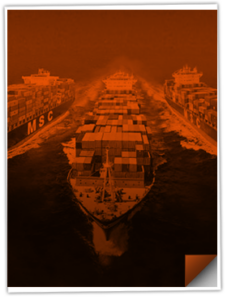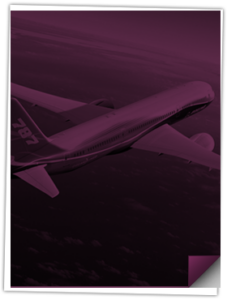Featured Headlines:
FDA Announces New Industry Portal for FSVP Records Submission
Additional 301 Tariffs Suspended for 6 Countries in the DST Investigation
FDA Enters Second Phase of AI Imported Seafood Pilot Program
Looking for a Supply Chain Partner to ‘Flash’ You?
Carriers Skip ‘Second Tier’ Ports Due to Severe Congestion
ATL Airfreight Gets a Facelift (and a Forklift!)
Suez Canal Expansion Project Underway to Prevent Further Blockages
Our Expert Shapinion - We Help You Get Your Ship Together
FDA Announces New Industry Portal for FSVP Records Submission
Earlier this month, the U.S. Food and Drug Administration (FDA) opened the FSVP Importer Portal for FSVP Records Submission (Portal) for importers of human and animal food into the United States. According to officials, the FDA established the Portal to allow FSVP importers to submit records electronically to the agency.
The Foreign Supplier Verification Programs for Food Importers (FSVP), established by the Food Safety Modernization Act (FSMA), requires FSVP importers to perform certain risk-based activities to verify that foreign suppliers produce food in accordance with U.S. food safety standards.
Traditionally, the FDA conducts record inspections at an FSVP importer’s place of business. However, if requested in writing by the FDA, the FSVP regulation requires FSVP importers to provide FSVP records to the agency electronically or through another means that delivers the records promptly.
For FSVP importers with active FDA Account IDs, the Portal is accessible via the FDA’s Unified Registration and Listing System (FURLS) webpage. FSVP importers without an existing account can create one on the FURLS page.
Click here to view the full announcement (CSMS# 47751642) posted on CBP’s website.
If you have any questions regarding FSVP, please contact a member of Shapiro’s Compliance Team.
Additional 301 Tariffs Suspended for 6 Countries in the DST Investigation
As you may already be aware, the office of the U.S. Trade Representative (USTR) announced the conclusion of Section 301 investigations of Digital Service Taxes (DST) adopted by Austria, India, Italy, Spain, Turkey, and the United Kingdom.
The final determination in the six individual investigations is to impose additional 25% 301 tariffs on certain goods from these countries.
The USTR announced it is immediately suspending the tariffs for up to 180 days to provide additional time to complete the ongoing multilateral negotiations on international taxation at the Organization for Economic Cooperation and Development (OECD) and in the G20 processes. This action will provide “time for those negotiations to continue to make progress while maintaining the option of imposing tariffs under Section 301 if warranted in the future”, said Ambassador Katherine Tai.
Click HERE to view the official Federal Register notices – each of which include an annex of goods for each country.
Shapiro will continue to monitor the situation and provide status updates as they become available.
Do you have questions related to Section 301 investigations?
We encourage you to reach out to [email protected] for additional assistance.
GSP Program and MTB Set to Renew in Trade Act of 2021; Includes China Legislation and CBP Counterfeits Amendment
As you are likely aware, the Generalized System of Preferences (GSP) program and Miscellaneous Tariff Bill (MTB) expired at the end of last year. It was largely expected that these programs would be up for renewal at some point in 2021.
Now, it appears that advocates were right in their predictions, as officials announced that the Trade Act of 2021 – which is aimed at promoting tariff relief and competitive advantage for the U.S. in world trade – will include an amendment to renew MTB and the GSP benefits program. We understand that it will also contain a legislative package aimed at China, and will expand information sharing from U.S. Customs and Border Protection (CBP) on counterfeit products.
The Senate returns on June 8. If the amendment passes in the Senate, it will:
- Restart and reform the exclusion process for Section 301 tariffs on Chinese goods;
- Strengthen CBP’s enforcement of forced labor rules on seafood imports; and
- Require increased inspections and annual reports of counterfeit seizures from CBP.
According to Finance Committee ranking member Sen. Mike Crapo, the amendment “strengthens oversight over U.S. trade policy by providing an inspector general to the USTR, and by ensuring the application of section 301 tariffs related to China are calibrated to provide the necessary leverage to support American competition while ensuring U.S. competitiveness in manufacturing.”
At this time, not all Senate officials agree with the amendment as is. However, the U.S. Trade Representative (USTR) will continue to improve the amendment as the legislative process continues.
If you have any questions related to GSP and MTB renewals, please reach out to the Shapiro Compliance Team.
FDA Enters Second Phase of AI Imported Seafood Pilot Program
The U.S. Food and Drug Administration (FDA) has recently moved into the second phase of its Artificial Intelligence (AI) Imported Seafood Pilot program. The goal of this program is to use AI technology to enhance the FDA’s ability to identify and expose potential risks associated with U.S. seafood imports.
During phase one of the pilot, data from earlier FDA shipments were screened using AI. The test results from this stage revealed that AI screening was almost three times as effective as the agency’s standard screening protocols in pinpointing high-risk shipments.
The second phase of the program will attempt to leverage Machine Learning (ML) – an AI-based technology that identifies complex data patterns and connections that are often undetectable by the human brain – to sort, analyze and evaluate import data collected by FDA screening systems more efficiently. During this stage, the challenges will be related to selecting the shipments to examine, as well as deciding which food should be tested within flagged shipments.
The outcomes of the AI model will then be compared with those of the current FDA model.
Phase two is currently underway and is scheduled to continue through July 31, 2021. At this time, there are not any significant service interruptions for importers expected; however, the FDA will continue to advise the public on the results of this program.
For any questions related to this program, please contact [email protected].
Want to learn more on logistics technology? Learn how technology is changing the future of logistics and your business.
Looking for a Supply Chain Partner to ‘Flash’ You?
In today’s constantly changing world, it can be tough to stay up to date on all the governmental changes and logistical challenges that may affect you and your business.
Lucky for you, Shapiro knows the value of a hot flash!
Sign-up via our Subscription Center to receive the latest urgent industry alerts that may affect your freight (for FREE…)!
Carriers Skip ‘Second Tier’ Ports Due to Severe Congestion
Carriers have begun resorting to old measures for new reasons on Trans-Pacific lanes, which is very unwelcomed news for an industry that’s already suffering from near-crippling and unprecedented effects resulting from the pandemic.
Carriers Draw a Blank on Schedule Reliability
Certain “second tier” ports in China are being omitted from their regular rotations due to the congestion at origin. Affected ports include Qingdao, Xingang/Tianjin, and Ningbo. Considering very few carriers have direct calls into some of these ports, such as Cosco and Evergreen, this is problematic (to say the least!).
Ocean Network Express (ONE) advised customers that it omitted calls at Busan (South Korea).
Additionally, Maersk also announced that it would skip Busan, as well as several other Japanese ports on sailings bound for Australia.
In May, carriers blanked entire sailings to retain schedule reliability, a symptom with many causes. Container shortages increase, thereby preventing shippers from making scheduled sailings. One of the newer causes, however, are the residual effects of the Suez Canal disaster.
Yantian Outbreak Yanks on Already – Suffering Supply Chains
Even more recently, however, a COVID-19 outbreak in Yantian created restrictions that are now affecting port operations there. At the end of May, the port paused its acceptance of loaded export containers several times to allow for the movement of import and empty containers. When acceptance was not paused, only containers departing within 3 days were gated in.
Shippers and importers should brace themselves for continued disruptions as more volume squeezes capacity in the upcoming peak season.
Carriers have already instituted general rate increases (GRI’s) for the month of June, and many expect that this will be a trend into the summer. GRI’s are usually a telltale sign of expected congestion; the severity of the congestion heavily relies on each carrier’s and port’s ability to clear the current backlogs.
How can Shapiro help? Should you require any assistance in successfully booking your cargo during this turbulent time, or additional information about current rates, please reach out to our Transportation team today.
ATL Airfreight Gets a Facelift (and a Forklift!)
On May 27th, Worldwide Flight Services (WFS) announced the opening of a brand-new, 100,000 square foot cargo building at Atlanta’s Hartsfield–Jackson International Airport (ATL).
Prior to the pandemic, ATL was already recognized as the world’s busiest international airport; however, with updates to its decades–old terminals progressing slowly, air cargo infrastructure has lagged. In fact, this is the first new cargo terminal ATL has had in more than 30 years (!).
The new facility will include, but is not limited to the following:
- Multiple security features
- Warehouse forklifts (with a capacity range of 4,000–30,000 lbs.)
- Eleven (11) dock doors
- Temperature services
- Freighter handling capabilities
Did you know that airfreight is expected to generate over $150B in 2021? Check out our May issue of Supply Chain Reactions to learn more!
Suez Canal Expansion Project Underway to Prevent Further Blockages
In order to prevent further chaos on global trade, the Suez Canal Authority (SCA) has started a dredging project to expand the southern section of the Canal. After the EVER GIVEN, a massive container ship, blocked the Suez Canal in late March, the expansion seeks to create a duplicate shipping lane to improve traffic in the area.
According to Osama Rabie, head of the SCA, an 18.6 mile stretch of the waterway will be widened by approximately 131 feet and deepened by 32 feet.
At the time of the blockage, at least 367 vessels (including 96 container ships) were awaiting passage, which resulted in approximately $90 million in lost toll revenue for the SCA. Altogether, however, the EVER GIVEN is estimated to have held up as much as $10 billion of cargo per day.
With more than 10% of world trade flow routed through the Canal, there’s little doubt that the expansion project is a direct result of the global disruption and horrifying delays shippers felt from the 6-day jam. Ultimately, officials hope that the Canal’s expansion will help to create a world in which all shippers aren’t negatively affected solely because of an isolated incident’s complications, such as this.
Shapiro will continue to monitor the situation and keep you updated. Should you have any questions, please reach out to our Transportation team today.
Our Expert Shapinion - We Help You Get Your Ship Together

In 1950, the Magic 8 Ball hit shelves for the first time in the United States; this makes the magical icosahedron six years older than the era of cargo containerization.
How many of us predicted that we would ALL buy appliances, furniture, and exercise bikes?!
How many of us foresaw the Empire State Building blocking the Suez Canal?!
How many of us thought we would EVER pay $10,000 to move $15,000 worth of goods?!
Nobody. Nadie. Niemand. Personne. Méiyǒu rén.
At that rate, we might as well use a Magic 8 Ball to predict the coming freight realities in 2021 and 2022. Hey, that’s not a bad idea… I mean it is filled with blue liquid like the ocean!
Oh, and before any of you market prognosticators scoff, 328 million Magic 8 Balls have been sold since 1950. That’s one for every US citizen – come on, we know you have one in the back of that brand new dresser, wardrobe, or filing cabinet…!
Question #1: Will the NITL Succeed in Reforming the Shipping Act?
Context: The National Industrial Transportation League (NITL) has submitted several proposed reforms to the Shipping Act of 1984 to better protect importers on demurrage/detention, booking commitments, equipment availability, and a clear process to file carrier complaints. Not surprisingly, the World Shipping Council (WSC), which represents the steamship industry (an industry well-protected by antitrust immunity) said, “…there is no legislative policy that can change the systemic physical challenges caused by the COVID-19 cargo crunch.”
2 Shakes of the Magic 8 Ball: 1. Don’t count on It. 2. My sources say no.
Question #2: Will My Service Contracts Provide Me with Enough Allocation?
Context: In 2020, most importers were essentially abandoned by ocean carriers if they did not agree to the infamous “mutually agreed” PSS (peak season surcharge). For 2021 contract negotiations, the vast majority of deals are openly subject to PSS, and the carriers trimmed MQC (minimum quantity commitment) for unfavorable lanes and cargoes.
2 Shakes of the Magic 8 Ball: 1. Reply hazy, try again. 2. Ask again later.
Question #3: Will I Be Paying Close to FAK Levels on My Service Contracts?
Context: Pundits estimate that 50% of the current market is moving on “premium” rate levels, with the rest of the market split between contracts and FAK (Freight All Kinds). This will put tremendous pressure on the PSS clauses of most contracts, and we have already seen FAK spike in May.
2 Shakes of the Magic 8 Ball: 1. Signs point to yes. 2. It is decidedly so.
Question #4: Can I At Least Expect a Return to Normal Drayage?
Context: Dray turns are down 25-50% across the country thanks to equipment scarcity, port congestion, and splits. Dray turns “drive” driver pay. At the same time, the FTL business is booming in volume and rates; watch those draymen RUN to the FTL side of the house!
2 Shakes of the Magic 8 Ball: 1. My reply is no. 2. My reply is no!
Question #5: Will there be Labor Trouble in LA/LGB within Months?
Context: The current International Longshore & Warehouse Union’s (ILWU) contract expires in July 2022. In the meantime, Total Terminal International (TTI) announced their decision to automate the 385-acre Pier T Terminal. ‘Nuff said.
2 Shakes of the Magic 8 Ball: 1. You may rely on it. 2. Without a doubt.
Question #6: But Airfreight Rates Will Finally Come Down…Right?!
Context: YTD 2021 airfreight demand is about 16% higher than 2019, while passenger belly capacity is very slowly increasing. At the same time, the industry has only increased cargo flights by 2.74% in a year. Oh, and here comes the next iPhone in October!
2 Shakes of the Magic 8 Ball: 1. Outlook not so good. 2. Very doubtful.
Question #7: Will China Continue to Rebound for US Import Share?
Context: Despite tremendous tariff and freight cost headwinds, China got back to 2018 import volumes to the US in 2020. With cargo backlogs and pandemic-related production problems in many other countries, China is poised to be a go-to production location for years to come.
2 Shakes of the Magic 8 Ball: 1. Yes, definitely. 2. Outlook good.
Question #8: Will US Shippers Fare Better on Freight Budgets in 2021?
Context: A recent survey indicated that fewer than 2% of American businesses met or spent less than their freight cost budgets last year, with more than 10% indicating a spend of 300% or more (!). After hard-won experience in 2020 and early 2021 – and now that we have dusted off our Magic 8 balls – maybe we avoided living behind the 8 ball and nailed this year’s budget?!
2 Shakes of the Magic 8 Ball: 1. Concentrate and ask again. 2. Cannot predict now.
Interested in reading more articles like this in the future? You can sign-up to receive the next edition of Supply Chain Reactions via our Subscription Center. (And did we mention it’s FREE?!)
Employee of the Month
As previously featured in Shap Talk, Shapiro has been sharing with you the names of employees who have been recognized for their exceptional efforts and contributions to our Company. At Shapiro, we continually work to develop, challenge, and inspire all of our employees to grow individually and with the Company.
This month, we would like to recognize Kelly Horner, Global Logistics Specialist.
Although nearly every customer and market seems to be strained and chaotic these days, Kelly has done a remarkable job taking the lead for issues out of Shapiro’s two key markets (Brazil and Turkey) for one of our largest customers. Kelly guides the customer’s staff in training and decision making, keeping them on task as they make necessary adjustments to their supply chain. In addition, she ensures our systems remain aligned with their TMS as they continue to develop their own technology solutions. On top of this, Kelly ensures that another one of our Key Accounts has all the information they need for streamlined movement of their international freight. Kelly has picked up whatever is needed during these crazy times and we are truly grateful for her efforts. Congratulations, and thank you, Kelly!
We encourage you to provide us with employee feedback! Please email us at [email protected].
Come Join Our Crew!

Tired of feeling like you’re floating around aimlessly in an open sea at your current job? Are you looking to explore new waters? Well, set sail for a new career and join our crew today!



